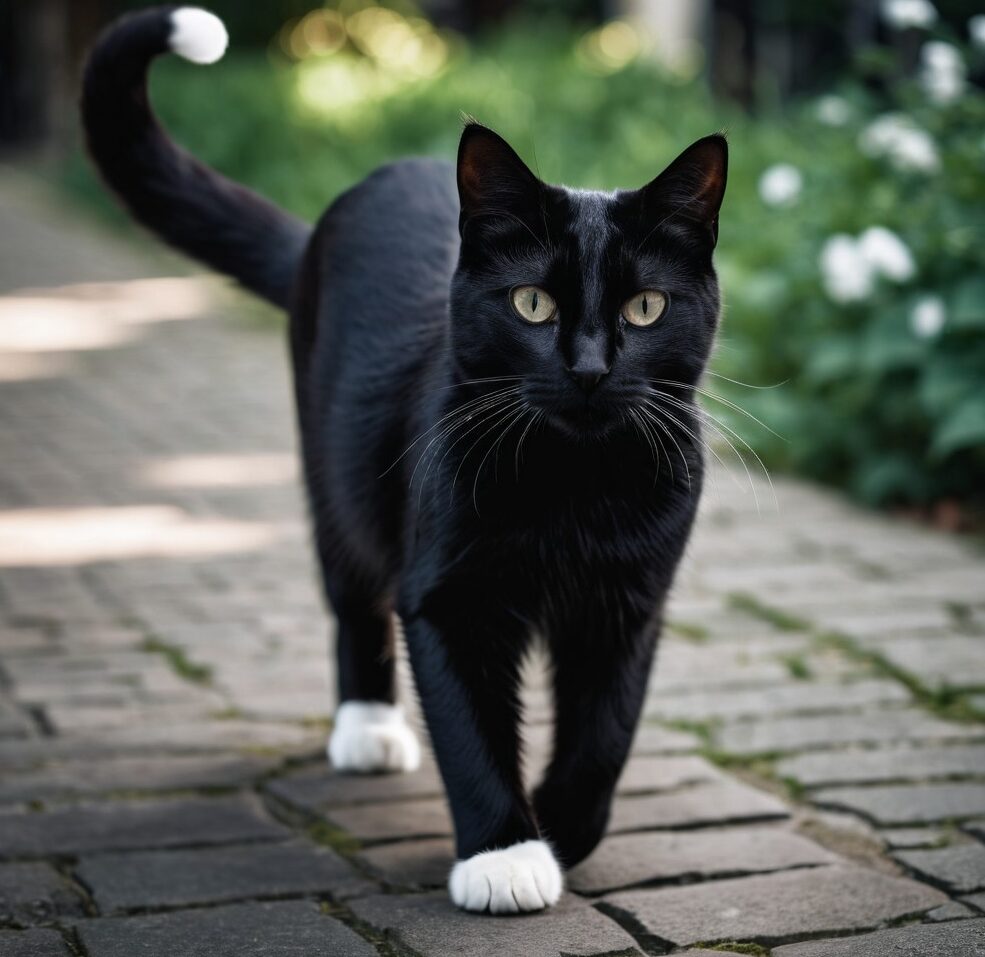With the rise of do-it-yourself pet grooming, many cat owners are taking on the task of keeping their feline friends well-groomed. However, in the quest for a clean and fluffy kitty, some common mistakes can lead to discomfort or even harm to our beloved pets. In this informative blog post, we will discuss the top cat grooming mistakes to avoid at all costs, providing valuable insights and tips to ensure a safe and enjoyable grooming experience for both you and your cat.
Grooming Tools and Techniques
Selecting the Right Equipment
To ensure a successful grooming session with your cat, selecting the right equipment is necessary. Investing in high-quality grooming tools such as a slicker brush, comb, and nail clippers specifically designed for cats will make the process easier and more effective. Consider your cat’s coat length and thickness when choosing tools to ensure you have the right ones for your cat’s grooming needs.
Proper Usage of Grooming Tools
One common mistake cat owners make is using grooming tools improperly, which can cause discomfort or injury to their feline friend. It’s crucial to handle each tool with care and use them in the correct way to avoid any mishaps. For example, when using a slicker brush, gently brush in the direction of hair growth to prevent pulling or tugging on your cat’s skin. Regularly clean and replace grooming tools to ensure they remain effective and safe for your cat.
Bathing Your Cat
Identifying the Need for Baths
Need to give your cat a bath? Before you start filling up the tub, it’s crucial to determine if your feline friend really needs a bath. Cats are known for their meticulous grooming habits, and they can typically keep themselves clean without the need for regular baths. However, there are certain situations where a bath may be necessary, such as if your cat has gotten into something sticky or has a skin condition that requires special bathing treatments.
The Perils of Over-Bathing
Forcing your cat into frequent baths can lead to a host of problems. Over-bathing can strip your cat’s skin and fur of crucial oils, leading to dryness, itching, and irritation. It can also disrupt the natural balance of bacteria on your cat’s skin, making them more susceptible to infections. Cats generally do not enjoy water, and subjecting them to frequent baths can cause them significant stress and anxiety.
Bathing your cat should be done sparingly and only when necessary. It’s important to use cat-specific shampoos and to rinse thoroughly to avoid any residue that could cause skin irritation. If your cat absolutely despises baths, consider alternatives like waterless shampoos or grooming wipes to keep them clean and comfortable.
Hair Maintenance
Understanding Cat Hair and Shedding
For cat owners, understanding your cat’s hair and shedding patterns is crucial for effective grooming. Cats have different coat types such as short, medium, long, and curly, each requiring specific care. Shedding is a natural process for cats, especially during seasonal changes, but excessive shedding could indicate health issues or improper grooming practices.
Dangers of Improper Brushing and Shaving
On the surface, brushing and shaving your cat’s fur may seem like simple tasks, but there are potential dangers if not done correctly. The use of improper tools or techniques can lead to skin irritation, cuts, and discomfort for your feline friend. It’s necessary to use cat-specific grooming tools and learn the correct brushing and shaving methods to avoid these risks.
The buildup of mats and tangles in your cat’s fur can not only be uncomfortable but also pose health risks. Mats can restrict blood flow and create a breeding ground for parasites and infections. Improper shaving techniques may result in uneven or patchy fur, making your cat vulnerable to sunburn and temperature regulation issues.
Nail Care and Oral Hygiene
Trimming Nails Safely
Care must be taken when trimming your cat’s nails to avoid causing them any pain or discomfort. Use proper cat-specific nail clippers and only trim the sharp tip of the nail, being careful not to cut into the quick which can cause bleeding. If you are unsure or uncomfortable with trimming your cat’s nails, consult a professional groomer or veterinarian for assistance.
Oral Health and its Grooming Implications
An important but often overlooked aspect of cat grooming is oral health. Neglecting your cat’s oral hygiene can lead to serious health issues such as dental disease and bad breath. Regularly brushing your cat’s teeth with a pet-safe toothbrush and toothpaste can help prevent these problems and maintain their overall health. Additionally, scheduling regular dental check-ups with your veterinarian is crucial for identifying and addressing any potential issues early on.
As with humans, poor oral hygiene in cats can lead to a variety of health problems, including periodontal disease, tooth decay, and even heart and kidney issues. It is important to establish a routine for your cat’s oral care early on to prevent these issues from arising. Providing dental treats and toys can also help promote good oral health and keep your cat’s teeth clean and strong.
Handling Sensitive Areas
Eyes and Ears: Cleaning with Caution
Sensitive areas such as the eyes and ears require gentle handling when grooming your cat. Use a veterinarian-approved cleaning solution and soft cotton balls to wipe away any dirt or discharge around the eyes. When cleaning the ears, avoid going too deep into the ear canal to prevent injury. If you notice any redness, swelling, or unusual odor, consult your veterinarian immediately.
Avoiding Harm while Grooming the Paws and Tail
On the pads of their paws and the delicate skin around the tail, cats are particularly sensitive. When handling these areas, be cautious not to trim their nails too short, as it can cause bleeding and pain. Use a high-quality cat nail trimmer and only clip the tips of the nails. For the tail, gently brush and untangle any knots without pulling or causing discomfort to your feline friend.
Cleaning Sensitive areas such as the eyes and ears should be done regularly but with great care. Always approach these areas with caution, using the right tools and techniques to prevent any harm or discomfort to your cat. Recall, grooming is important for your cat’s well-being, but it should always be done gently and safely.
Behavioral Considerations
Grooming and Your Cat’s Stress Levels
Many cat owners overlook the impact that grooming can have on their feline friend’s stress levels. It’s crucial to understand that cats are sensitive creatures who may become anxious or agitated during grooming sessions. To ensure your cat remains calm and cooperative, create a soothing environment by grooming in a quiet, familiar space and using gentle, slow movements to avoid startling them.
Mistakes in Dealing with Behavioral Issues during Grooming
Any mistakes in handling your cat’s behavioral issues during grooming can lead to negative experiences and create long-term aversions. To avoid these mistakes, it’s necessary to recognize and respect your cat’s cues. Rushing through grooming, ignoring signs of discomfort, or using forceful restraint can increase their stress levels and cause them to resist grooming altogether.
Issues may arise during grooming sessions if your cat is displaying aggressive behavior, such as hissing, growling, or scratching. It’s crucial not to punish your cat for these behaviors but instead to assess the situation calmly and consider seeking guidance from a professional groomer or veterinarian. Understanding and addressing your cat’s behavioral cues will help create a positive grooming experience for both you and your feline companion.
Professional Grooming vs. Home Care
Knowing When to Seek Professional Help
Seeking professional help for your cat’s grooming is crucial when you encounter challenges that you are not equipped to handle at home. Signs such as excessive matting, aggressive behavior during grooming sessions, or skin abnormalities should signal that it’s time to consult a professional groomer who has the expertise and tools to manage these issues effectively.
The Risks of DIY Grooming Methods
Professional grooming is always preferred over DIY methods as it reduces the risks associated with inexperienced grooming practices. When you attempt to groom your cat at home without the proper knowledge or tools, you run the risk of causing injuries, stressing out your cat, or exacerbating existing skin conditions. It’s important to understand that grooming requires specialized skills and training which professionals possess.
When you engage in DIY grooming without the appropriate knowledge, you may unintentionally harm your cat, causing distress and discomfort. Professional groomers are well-versed in handling various grooming scenarios and know how to navigate them safely and efficiently, ensuring the well-being of your feline companion.
Conclusion
Presently, it is crucial for cat owners to be aware of common grooming mistakes that can potentially harm their feline companions. By avoiding these mistakes, such as neglecting regular grooming, using incorrect grooming tools, and ignoring signs of stress, cat owners can ensure their cats’ well-being and strengthen their bond. It is crucial to educate oneself on proper grooming techniques and seek professional help when needed to maintain a healthy and happy cat.
FAQ
Q: What are some common cat grooming mistakes to avoid?
A: Common cat grooming mistakes to avoid include using human grooming products, neglecting to brush your cat regularly, not trimming your cat’s nails, and forcing your cat into grooming sessions.
Q: Why is it important to avoid these grooming mistakes?
A: Avoiding these grooming mistakes is crucial because using human grooming products can be harmful to cats, neglecting brushing can lead to matting and skin issues, not trimming nails can cause discomfort and potential injury, and forcing grooming sessions can lead to stress and anxiety for your cat.
How can I ensure proper grooming practices for my cat?
A: To ensure proper grooming practices for your cat, use cat-specific grooming products, brush your cat regularly to prevent matting, trim your cat’s nails when needed, and create a positive grooming experience by starting slow, using treats, and stopping if your cat becomes stressed.



